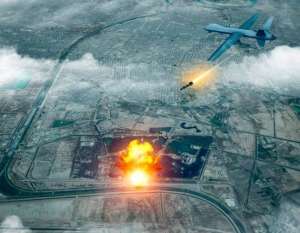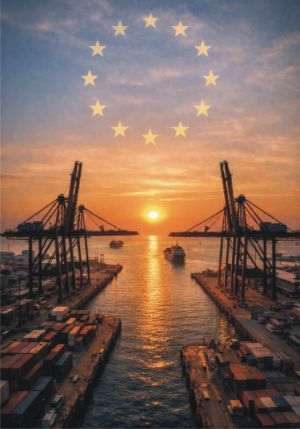Reporter: What is your comment on the ruling of the Court of Arbitration of Paris in which ENEL is required to pay 401 million Euros to the Romanian state?
Gabriel Dumitraşcu: Personally, I declare myself pleased with the ruling of the court, I consider it fair in all aspects, both in terms of honorability and in terms of the valuation of the block of shares owned by SAPE.
Now I am going to tell you, for the first time, that some of the clauses in the contract were debatable, because they would introduce some variables that were hard to determine, under the circumstances of a market economy. Which is why Enel also had objections and would not accept the price formed on the basis of the privatization contract, which set the mechanisms for the forming of the price in the case of the Put option (Put Option Clause).
That privatization contract was approved through a Government Decision, in 2007, when it was Călin Popescu Tăriceanu who was the prime-minister. Therefore, it was mandatory to follow the mechanism for the formation of the price set in the contract, even though we had some doubts ourselves and certain doubts concerning the applicability of some provisions of the provisions from that document.
The whole procedure in this particular case was conducted by the Division for the Privatization and Management of the State's Interests, which I was in charge of at the time.
I was never worried because I have every time pursued the legality and the opportunity of the documents that I have concluded, and I did so in this particular legal case as well.
Moreover, we had meticulously prepared our position, we accurately knew the procedures, the flaws of the contract, we knew exactly what those arguable clauses were and why they were debatable.
As for the refusal to accept the amount proposed by HSBC of 250 million Euros, as long as I had the professional conviction that what we were doing was correct and legal, I never had that worry.
In the end it was a matter of responsibility and attitude. My reason for turning down this offer came from my professional conviction that what I was claiming was valid. I also have to tell you that, reconsidering those variables which were debatable in the circumstances of a functional market economy and of the international practices, the correct amount of the block of shares calculated by the Romanian party was slightly bigger than the amount set by the Court of Arbitration of Paris.
Reporter: What was the attitude of ENEL during the negotiations and the trial?
Gabriel Dumitraşcu: ENEL making a show of force was never brought up. In fact, both Enel and the Romanian party have acted within the spirit of the privatization contract, in good faith, with openness, with a fair attitude, in order to find a solution to the dispute. At no point was there a case of where the Italian company tried to resort to blackmail. Enel did not, during the negotiations, threaten with a withdrawal from Romania if a solution wasn't found.
Reporter: But it did announce it would withdraw from Romania.
Gabriel Dumitraşcu: It was just a coincidence, because a number of administrative changes happened in the Enel group. Those included even the replacement of the Chairman of the Board of Directors.
The new Chairman of the Board of Directors announced a different program for the development of the company, with an emphasis on other segments. Initially, in the first development program, based on the numbers and returns, as well as of the focus that the Enel Group had, they did not include the investments for a nuclear plant in Slovakia and the distribution side in Romania.
After reconsidering the numbers and the rearrangement of the options in the strategy of the Enel group, the new chairman of the group himself, Francesco Starace, announced that he had reconsidered his position concerning Romania and that Romania was a perfect fit for the future strategy of the Enel group.
Reporter: Romania asked for more than 500 million Euros, but it was awarded 401 million Euros. What is your opinion on the final amount that was awarded?
Gabriel Dumitraşcu: In November 2012, the state asked for 513 million Euros, by literally applying the mechanism from the privatization contract. After we reconsidered our position and we reviewed those arguable conditions, we came up with an amount closer to 430 million Euros. Personally I am pleased with the result.
The money will enter the accounts of the state, namely of the SAPE. As a measure to prepare the Electrica group for privatization, we have said that the management of the minority stakes, as well as the amounts coming from various lawsuits, from the post-privatization procedure, from current dividends, will lead to the formation of a new attitude at the level of the SAPE, so that it can become a precursor of the Sovereign Fund for Development.
If I remember correctly, in the very report I gave the government at the time, I was saying that the SAPE would exercise strategies and options in order to form the abilities needed for the management of a Sovereign Fund. I would be happy if that role were sought from now on, it has been abandoned over the last few years.
As for what will happen with the money, I would suggest to the appropriate Romanian authorities that, they use, through the SAPE, at least a portion of the 400 million Euros buy 2-3% of the Electrica group from the stock market in order to send a clear message that the Romanian state trusts the strategic role of the Electrica group when it comes to Romania and that it is consolidating its position in order to implement the vision about the Electrica group and the role of the Electrica group, not just in Romania, but perhaps in the Balkan area as well.
The state would become a majority shareholder again.




























































